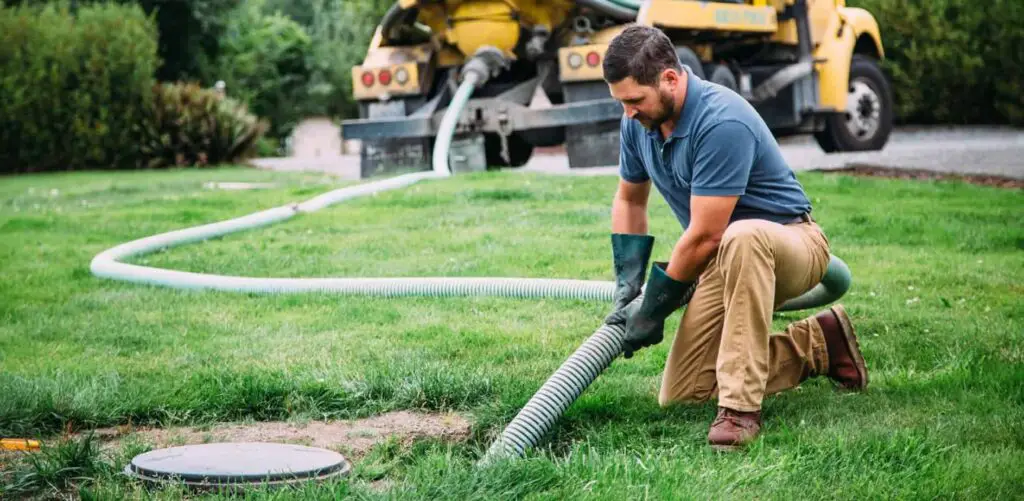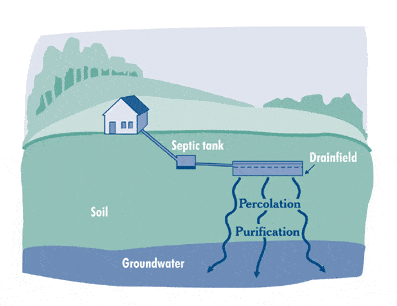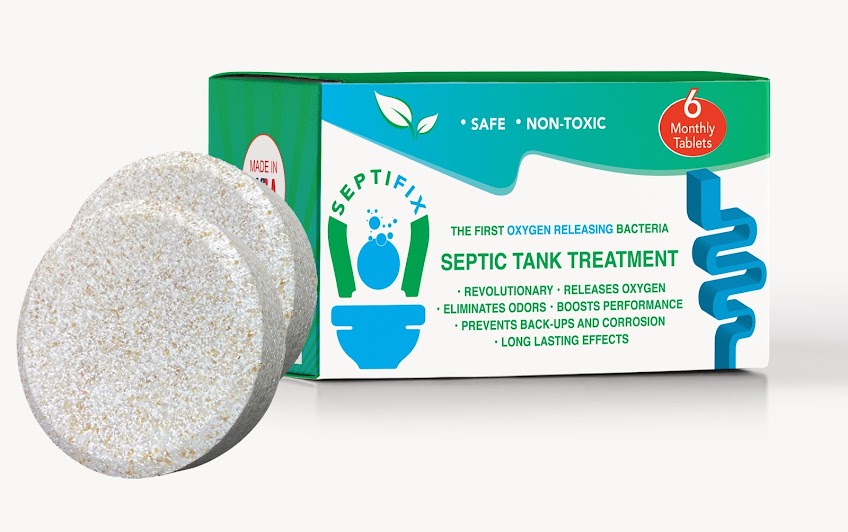How Long Does It Take To Pump Out A Septic Tank?
A septic tank is like the car you drive. Take good care of your tank, and it will last many years; ignore it, and it will break down frequently. Cleaning a septic tank—just like performing preventive maintenance on a car—is not time-consuming, so there’s no excuse for not doing it. In this post, we will take a look at all you need to know to keep your tank in good working condition.
So, how long does it take to pump out a septic tank? On average, it takes approximately 20 to 35 minutes to clean a 1000 gallon septic tank. However, this is just the average. It may take longer if your septic tank is bigger than normal or has not been cleaned for a while.
Continue reading to find out how often you should pump out a septic tank and factors that affect the frequency of septic pumping. We will also discuss just exactly why you must regularly clean your septic tank, tell-tale signs that show your septic tank needs cleaning, and tips to keep your septic system healthy for many long years.
Call For Pumping: 18559250760

How Often Should You Clean Your Septic Tank?
The general rule of thumb is to empty out a septic tank once every three to five years. Again, this is just the average. How frequently you must pump out the sledge depends on the following three factors:
- Size of the household – Generally speaking, the more people living in your home, the more amount of wastewater will get pumped into your septic tank, speeding up the need for a routine tank cleanup.
- Quantity of wastewater produced – In most cases, the amount of wastewater created largely depends on the number of people living in the house. That said, no two households are the same. If, for some reason, your home produces more wastewater than usual, you will need to empty out the tank sooner than others.
- Septic tank capacity – The frequency of a routine septic pump is directly proportional to the size of the tank. The smaller the tank, the more often you must clean it and vice-versa.
Why You Must Clean Your Septic Tank on a Regular Basis?
You may be wondering:”Why must I clean my septic tank regularly, even when there are no tell-tale signs of a septic emergency?”
After all, “if it ain’t broke, don’t fix it” is as good a philosophy as any to live by.
That may be so, but it doesn’t really go along with septic systems. That’s because the first real problem with a tank may well mark the beginning of the end.
A Septic system is not a trash incinerator. A properly-functioning septic system removes all the wastewater that you send its way and filters it through a drain field. However, the hard waste (such as cigarettes butts, baby wipes, tissue, feminine products, etc.) accumulates at its bottom over time.
This hard waste, also known as sludge, is the main reason why you must regularly clean the septic tank. If too much of it gets collected at the bottom of the tank, you are going to have all sorts of problems, such as liquid surfacing in the soil over the septic tank or slow draining plumbing fixtures.
Eventually, sludge will seep into the tank inlet and cause wastewater to back up into your home’s plumbing—and there’s no going back from that. You’ll then have to replace your septic tank.
Cleaning the tank on a regular basis helps relieve you of many headaches that could come with ignoring your septic system. It also helps you prolong the life of your tank.
Although some people think septic tanks last forever, that’s not the case. The average life span of septic tanks is anywhere between 15 and 40 years. Regular maintenance can be the difference between your system lasting just one-and-a-half decade or four decades.
Call For Service: 18559250760
What are the Tell-Tale Signs that Show Your Septic System Needs a Pumping?
If you have not cleaned your septic system for a while and are seeing any of these signs, you must do so immediately.
- Sluggish Flushing or Draining
In case you have recently noticed slow draining tubs, washing machines, or showers or toilets are not flushing water as energetically as before, it’s probably an indication that your septic system needs a thorough cleaning.
- Odor
As the septic system fills up, odor-causing gasses can end up seeping through the drains or toilets. If there’s a persistent odor inside the home and you have checked other plausible causes and found nothing amiss, have your septic system checked without a delay.
- Increasing Plant Growth
Dying grass or lack of weed growth atop the drainfield isn’t necessarily a bad thing since the soil there is not as deep as it is over the rest of the yard. However, it is definitely a bad sign when the grass over the septic drainfield starts thriving faster and better than elsewhere in the lawn.
A surprisingly lush green growth over the drainfield could mean it is leaking much faster than usual or has decomposing waste that should have stayed inside the septic tank. Excess waste liquid basically provides the soil with extra fertilizer and facilitates plant growth.
- Standing Water
One sure-shot sign of your septic tank being full is standing water around the drainfield and the tank itself. If you see water pooling, have your septic system pumped immediately.
- Sewage Backup
Sewage backup is a possibility that you may have to face if you have chosen to ignore all other signs listed above. Get expert help straightaway if you have let things drift so far.
- High Nitrate Level in Your Well Water
This sign applies only to those homeowners who rely on well water. However, for them, it is a really important one. Experts recommend testing of well water at least once in 12 months, and if the nitrate content is higher than normal, it could be a sign that wastewater is overflowing the septic tank and entering into the drinking water.
Call For Service: 18559250760
How to Keep Your Septic System Healthy?
Apart from sticking to a regular pumping schedule, there are many other small yet effective steps that you can take to keep your septic system healthy and active for a long time.
- Use Water Efficiently
The average daily indoor water usage for a typical single-family home is approximately 70 gallons per individual. In other words, one running toilet can waste up to 200 gallons of water every day.
All of your household wastewater leaves through a pipe into your septic tank. So, the more the water you waste, the harder your septic system has to work. If you want your septic system to work efficiently for many years, try to save as much water as you can.
Here are some tips that will keep you in good stead:
Use high-efficiency toilets – With toilets accounting for nearly 25% of household water use, it makes sense to use high-efficiency toilets. Compared to older toilets that use anywhere between 3.5 and 5 gallons of water per flush, the newer toilets use 1.6 gallons of water or even less per flush.
Maximize washing machine loads – Washing machines can also waste a lot of water, particularly if you frequently run on large load cycles. You can address this issue by either running full loads or adjusting the water level as per the size of a given load.
Spread out your laundry washing over the week – Doing all household laundry in a single day may seem like a good idea, but it can make things harder your septic system by not allowing it enough time to treat the wastewater.
Also, go easy on bleach. When used in moderation, bleach doesn’t pose a danger to your septic system. But if you overuse it, the decomposing process in the tank can get slowed down.
Dispose waste properly – Whether you flush something down the toilet or pour something down the sink, bath, or shower, everything that enters your drains ends up in the septic tank. Therefore, be mindful of what you flush down the toilet or pour into the sink, bath, or shower.
The only thing you should flush is human waste and toilet paper. You should never flush:
- Cigarette butts
- Dental floss
- Cat litter
- Feminine hygiene products
- Baby wipes
Likewise, avoid pouring toxins down the kitchen sink, shower, or bath that can harm the bacteria in the tank. Never pour:
- Grease or cooking oil
- Oil-based solvents or paints
- Chemical drain openers
Related Questions to How Long Does It Take To Pump Out A Septic Tank
How Long Should I Wait to Pump My Septic Tank?
You should clean your septic tank once every three to five years. However, if your septic tank is smaller than normal or if your household generates more wastewater than usual, consider pumping your septic tank every two years.
Is it Illegal to Pump Your Septic Tank Yourselves?
In some states, like Florida, it is indeed illegal to do septic pump-outs yourself. In other states, while the act of pumping the septic tank yourself may be legal, you can get slapped with heavy fines if you don’t dispose the waste properly.
Call For Septic Pumping: 18559250760
Resources:
https://www.eckmayerinc.com/5-signs-your-septic-drainfield-has-stopped-working
https://alpineseptic.com/septic-tank-maintenance/
https://thepinkplumber.com/news/septic-tank-maintenance-when-is-it-necessary
https://www.paradisevalleyseptic.com/7-signs-you-need-to-pump-your-septic-tank/











